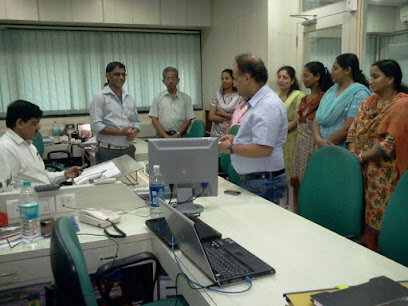Best Renewable & Alternative Energy Lawyers in India
Share your needs with us, get contacted by law firms.
Free. Takes 2 min.
Or refine your search by selecting a city:
List of the best lawyers in India
About Renewable & Alternative Energy Law in India
Renewable and alternative energy law in India governs the regulation, promotion, and implementation of sustainable energy sources such as solar, wind, hydro, biomass, and other non-fossil fuels. These laws are aimed at reducing the country’s reliance on traditional fossil fuels, decreasing carbon emissions, and promoting environmental sustainability. India is one of the world’s fastest-growing markets for renewable energy, and the legal landscape is shaped by various policies, acts, and regulations led by both central and state governments. Legal frameworks provide guidance on project approvals, grid connectivity, subsidies, incentives, land acquisition, environmental clearances, and compliance with national and international standards. Understanding this legal landscape is crucial for anyone involved in the development, distribution, or use of renewable and alternative energy in India.
Why You May Need a Lawyer
The renewable and alternative energy sector is regulated by a complex network of laws and policies at national and state levels. Many individuals and organizations may find themselves in situations where legal expertise is essential. Common scenarios where legal advice can be valuable include:
- Setting up a renewable energy project and navigating the requisite permits and clearances.
- Negotiating and drafting power purchase agreements or joint venture contracts.
- Addressing land acquisition or land use concerns for installing solar panels or wind turbines.
- Resolving disputes with regulatory authorities, vendors, partners, or contractors.
- Ensuring compliance with environmental regulations and safety standards.
- Accessing government incentives, subsidies, or financing schemes.
- Addressing intellectual property rights related to renewable energy innovations.
- Dealing with issues related to grid connectivity, open access, and electricity distribution.
Local Laws Overview
India’s renewable and alternative energy sector is primarily regulated by both central and state laws, policies, and administrative bodies. Some key legal aspects include:
- Electricity Act, 2003: Provides the legal framework for the generation, transmission, distribution, trading, and use of electricity, including renewable energy sources.
- National Solar Mission and Wind Energy Policy: Central policies to promote solar, wind, and hybrid energy initiatives through incentives, viability gap funding, and mandates for renewable purchase obligations.
- State-Specific Solar and Wind Policies: Each state may have its own guidelines, incentives, and procurement processes for renewable projects.
- Regulatory Bodies: The Ministry of New and Renewable Energy (MNRE) at the central level, and State Nodal Agencies (SNAs), regulate and promote these sectors. The Central Electricity Regulatory Commission (CERC) and State Electricity Regulatory Commissions (SERCs) issue crucial guidelines and tariff orders.
- Environment and Land Laws: Environmental Impact Assessment (EIA) notifications and land acquisition laws govern the approval process for new projects, especially large-scale installations.
- Open Access and Grid Connection: Laws and guidelines protecting the right of renewable projects to connect to the grid and sell energy efficiently.
- Green Energy Subsidies and Incentives: Various central and state government schemes provide financial incentives, tax exemptions, and subsidies for eligible projects.
Frequently Asked Questions
What are the main types of renewable energy promoted in India?
Solar, wind, bioenergy, hydro, and geothermal energy are the major forms of renewable energy promoted in India, with government emphasis currently strongest on solar and wind power.
Do I need governmental approval to set up a solar or wind plant?
Yes, setting up renewable energy projects typically requires several governmental approvals, such as land use permissions, environmental clearances, and grid connection permits, often at both central and state levels.
What incentives are available for renewable energy projects?
Incentives may include capital subsidies, generation-based incentives, tax holidays, accelerated depreciation, exemption from some duties and charges, and viability gap funding, depending on the type of project and its location.
How are power purchase agreements for renewable energy projects structured?
Power purchase agreements (PPAs) are legal contracts between energy developers and utilities or private purchasers that outline the terms for electricity sales, tariffs, contract duration, penalties, and dispute resolution.
What is the role of the Ministry of New and Renewable Energy (MNRE)?
The MNRE formulates and implements policies, programs, and incentives to promote the growth of renewable energy in India and oversees compliance with national targets and international commitments.
Are there special considerations for rooftop solar projects?
Rooftop solar installations must follow state-level net metering policies, technical standards for safety and performance, and often require approvals from the local distribution company and municipal authorities.
How can legal disputes in the renewable energy sector be resolved?
Disputes may be resolved through regulatory commissions, commercial courts, or arbitration, depending on the terms of the agreements and relevant statutory frameworks.
What is the Renewable Purchase Obligation (RPO)?
The RPO is a regulatory mandate requiring distribution companies, captive power producers, and large consumers to purchase or produce a certain percentage of their electricity from renewable sources.
Can foreign companies invest in India’s renewable energy sector?
Yes, foreign direct investment (FDI) is allowed up to 100 percent under the automatic route in the renewable energy sector, making it highly attractive for international investors.
What are the environmental compliance requirements for renewable energy projects?
Larger projects must undergo an Environmental Impact Assessment (EIA) and obtain clearance from the Ministry of Environment, Forest and Climate Change, in addition to complying with state pollution control standards.
Additional Resources
If you need more information or official guidance, the following resources can be helpful:
- Ministry of New and Renewable Energy (MNRE): The nodal central government ministry for policy formulation, incentives, and updates.
- Central Electricity Regulatory Commission (CERC): Issues tariff orders and interstate regulations.
- State Nodal Agencies (SNAs): Each state has its own agency (such as GEDA in Gujarat or MEDA in Maharashtra) overseeing regional projects and policies.
- Solar Energy Corporation of India (SECI): Manages auctions, tenders, and development initiatives for solar projects.
- Indian Renewable Energy Development Agency (IREDA): Offers financing and advisory services for renewable projects.
- Bar Council of India: Locate qualified lawyers specializing in energy law.
Next Steps
If you require legal assistance in renewable and alternative energy law in India, consider the following steps:
- Identify the nature of your legal issue, such as project approval, contract negotiation, regulatory compliance, or dispute resolution.
- Gather all relevant project details and documents, including permits, agreements, and correspondence with authorities.
- Consult a legal professional with experience in energy law to discuss your case and receive tailored guidance.
- Check with local bar associations or the Bar Council of India to find qualified lawyers specializing in the renewable energy sector.
- Stay updated on regulatory changes and new government schemes that may affect your project or interests.
Lawzana helps you find the best lawyers and law firms in India through a curated and pre-screened list of qualified legal professionals. Our platform offers rankings and detailed profiles of attorneys and law firms, allowing you to compare based on practice areas, including Renewable & Alternative Energy, experience, and client feedback.
Each profile includes a description of the firm's areas of practice, client reviews, team members and partners, year of establishment, spoken languages, office locations, contact information, social media presence, and any published articles or resources. Most firms on our platform speak English and are experienced in both local and international legal matters.
Get a quote from top-rated law firms in India — quickly, securely, and without unnecessary hassle.
Disclaimer:
The information provided on this page is for general informational purposes only and does not constitute legal advice. While we strive to ensure the accuracy and relevance of the content, legal information may change over time, and interpretations of the law can vary. You should always consult with a qualified legal professional for advice specific to your situation.
We disclaim all liability for actions taken or not taken based on the content of this page. If you believe any information is incorrect or outdated, please contact us, and we will review and update it where appropriate.
Browse renewable & alternative energy law firms by city in India
Refine your search by selecting a city.
















